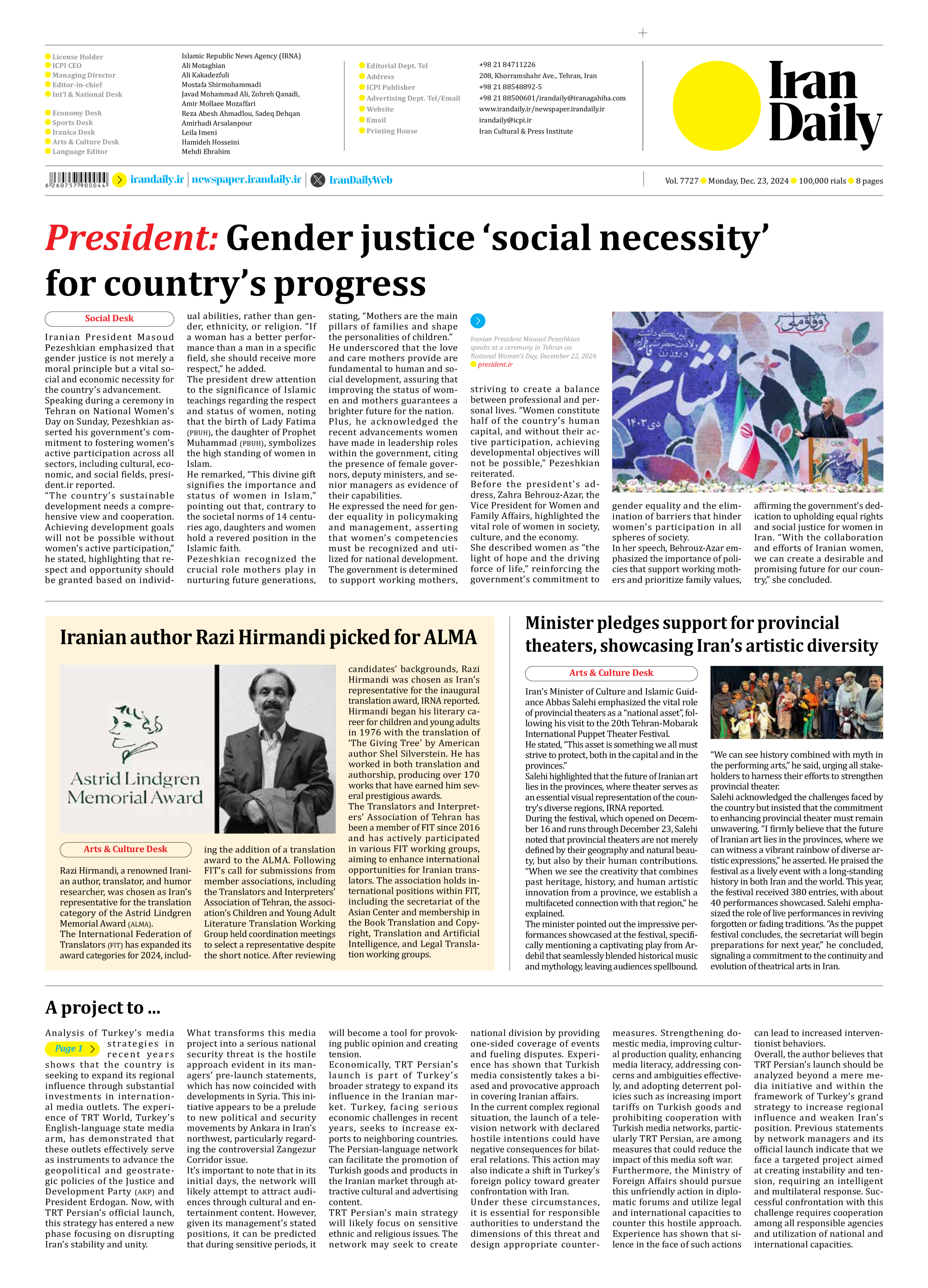
A project to ...
Page 1
Analysis of Turkey’s media strategies in recent years shows that the country is seeking to expand its regional influence through substantial investments in international media outlets. The experience of TRT World, Turkey’s English-language state media arm, has demonstrated that these outlets effectively serve as instruments to advance the geopolitical and geostrategic policies of the Justice and Development Party (AKP) and President Erdogan. Now, with TRT Persian’s official launch, this strategy has entered a new phase focusing on disrupting Iran’s stability and unity.
What transforms this media project into a serious national security threat is the hostile approach evident in its managers’ pre-launch statements, which has now coincided with developments in Syria. This initiative appears to be a prelude to new political and security movements by Ankara in Iran’s northwest, particularly regarding the controversial Zangezur Corridor issue.
It’s important to note that in its initial days, the network will likely attempt to attract audiences through cultural and entertainment content. However, given its management’s stated positions, it can be predicted that during sensitive periods, it will become a tool for provoking public opinion and creating tension.
Economically, TRT Persian’s launch is part of Turkey’s broader strategy to expand its influence in the Iranian market. Turkey, facing serious economic challenges in recent years, seeks to increase exports to neighboring countries. The Persian-language network can facilitate the promotion of Turkish goods and products in the Iranian market through attractive cultural and advertising content.
TRT Persian’s main strategy will likely focus on sensitive ethnic and religious issues. The network may seek to create national division by providing one-sided coverage of events and fueling disputes. Experience has shown that Turkish media consistently takes a biased and provocative approach in covering Iranian affairs.
In the current complex regional situation, the launch of a television network with declared hostile intentions could have negative consequences for bilateral relations. This action may also indicate a shift in Turkey’s foreign policy toward greater confrontation with Iran.
Under these circumstances, it is essential for responsible authorities to understand the dimensions of this threat and design appropriate countermeasures. Strengthening domestic media, improving cultural production quality, enhancing media literacy, addressing concerns and ambiguities effectively, and adopting deterrent policies such as increasing import tariffs on Turkish goods and prohibiting cooperation with Turkish media networks, particularly TRT Persian, are among measures that could reduce the impact of this media soft war.
Furthermore, the Ministry of Foreign Affairs should pursue this unfriendly action in diplomatic forums and utilize legal and international capacities to counter this hostile approach. Experience has shown that silence in the face of such actions can lead to increased interventionist behaviors.
Overall, the author believes that TRT Persian’s launch should be analyzed beyond a mere media initiative and within the framework of Turkey’s grand strategy to increase regional influence and weaken Iran’s position. Previous statements by network managers and its official launch indicate that we face a targeted project aimed at creating instability and tension, requiring an intelligent and multilateral response. Successful confrontation with this challenge requires cooperation among all responsible agencies and utilization of national and international capacities.







